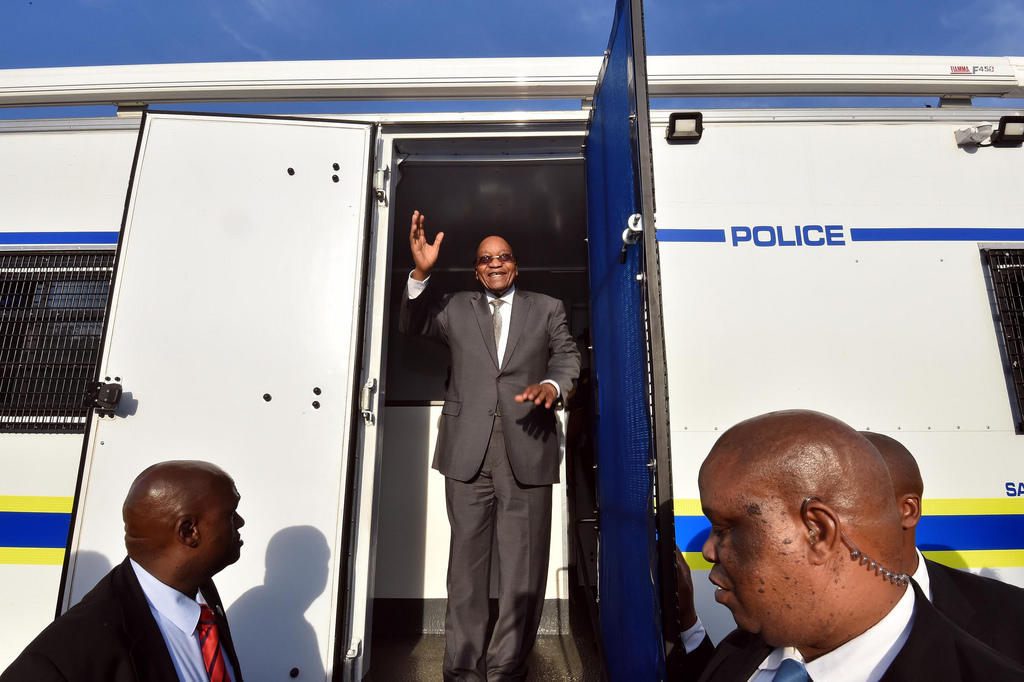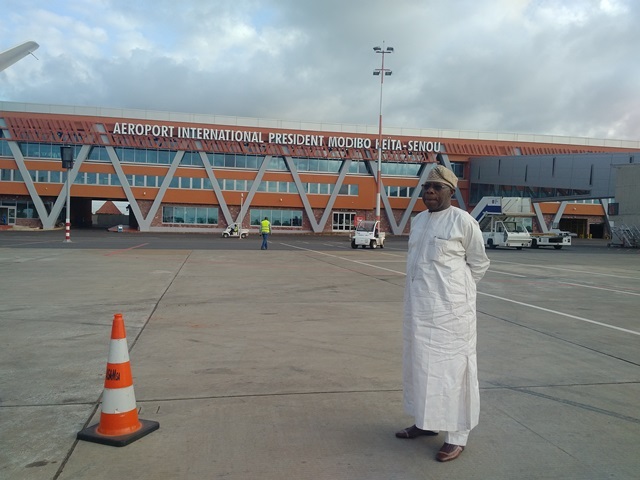News
Why Zuma's eventual departure won't solve South Africa's woes
The Jacob Zuma show is so dramatic that, like a horrible car crash, it is hard to look away.

South Africa’s President Jacob Zuma survived his eighth no-confidence vote in parliament last week despite presiding over a series of corruption scandals that has paralysed much of the government and overseeing an economy so mismanaged that it is one of the few in the world in recession.
Having survived by 21 votes, attention will now inevitably shift to when Zuma finally does go. He is scheduled to lose the presidency of the ruling African National Congress (ANC) this December. And, due to constitutionally-imposed term limits, he must step down as president of the country after national elections in April 2019.
Having first come to power in 2009, this will mark a significant break for South Africa. However, it would be a mistake to believe that the country’s economic performance will necessarily improve dramatically when it finally enters the post-Zuma era.
Zuma’s legacy
President Zuma is, in many respects, uniquely bad for South Africa. He has allegedly directed state contracts and, at times, the control of ministries to his friends. He has diverted millions in state funds to improve his personal home. And he has fired those who might block his enrichment plans. He is personally so corrupt that any efforts to promote good governance is simply implausible, perhaps even laughable, to civil servants who see what “Number One” (as he is known) is doing. In 2008, right before Zuma took power, South Africa was ranked 54th in Transparency International’s Corruption Perception Index. By 2016, it had fallen to 64th.
Post-Zuma South Africa will therefore be free of one burden. However, Zuma has been successful because he has established corruption systems that have enriched a fairly significant number of people. These individuals now have a direct interest in how the government directs tenders, allocates resources, and develops regulations. The loyalty of his party parliamentary supporters, who have kept him in power during eight no-confidence debates, is driven less by ideology than a pathology of fear and greed.
This “deep state” will not give up the policies and practices that have enriched so many Zuma supporters easily, not least since many would join the growing ranks of the unemployed without this patronage. Nearly 4 out of every 10 South Africans are now without jobs.
In office, Zuma has also allowed, and in some cases actively promoted, the substantial decline in state enterprises that provide electricity, run the ports and harbours, and the national airline. Even the best government will take years to reverse that damage.
Perhaps most importantly, Zuma has increasingly played the race card to legitimise his opponents and rally support. The political discourse in South Africa today, with ANC politicians blaming many if not all of the country’s problems on “white monopoly capital”, is a far cry from the “rainbow nation” of Nelson Mandela.
It will be very difficult for post-Zuma leaders to walk back some of the legislation, including the recently promulgated Mining Charter, that seem designed to punish whites. Future administrations will have to develop a way of explaining why, in a country still deeply divided by race, it is necessary to reverse policies that Zuma said were aimed at redistribution, even if they were unlikely to actually lead to black advancement or new investment.
The leader who succeeds Zuma will therefore be faced with herculean tasks. Simply ending the economic slide will be difficult. Making all the tough decisions to get the country to 5% growth so that it can start to reduce structural unemployment would tax any new leader.
South Africa’s next president?
Most who will try to succeed Zuma have kept their powder dry as they wait until the president is truly vulnerable, although there are some early frontrunners.
Cyril Ramaphosa, the current Deputy President, is widely respected in the West because of the important role he played in helping negotiate the peaceful transition from apartheid in the early 1990s. However, Ramaphosa’s standing in South Africa is much more complicated, and less positive, largely because he spent 20 years after the transition from white rule becoming extremely rich and seems totally comfortable in the very capitalist circles that Zuma decries.
Ramaphosa also has a habit, since he became Zuma’s deputy president in 2014, of signalling that he knows the right thing to do but without ever actually doing very much. Indeed, things have become worse in South Africa since he joined the government.
Another expected candidate is Nkosazana Dlamini-Zuma, Zuma’s ex-wife. She has been a cabinet minister and is a former chairperson of the African Union Commission, though her record of governance is mixed at best. She is also Zuma’s candidate. That suggests that she is unlikely to be a disruptive successor to his legacy and interests.
Hoping for change
The Jacob Zuma show is so dramatic that, like a horrible car crash, it is hard to look away. It also gives the impression that once he finally leaves, everything will change. However, the reality is that highly dysfunctional leaders survive not because they rule alone, but due to their skill in establishing networks and systems that work well in subverting the proper functioning of government.
For South Africa to genuinely change, the ruling ANC itself will have to change. But with little more than 15% of party members voting against Zuma in the latest no-confidence debate, the prospect of a different ANC seems distant even with a leadership reset. The alternative is that it will have to be voted out of power.
At this point, Zuma’s departure is a necessary condition for South Africa to reverse its current slide, but it will require a supremely astute and courageous leader to allow the country to reach its most notable aspirations.
This article was originally published in African Arguments.



